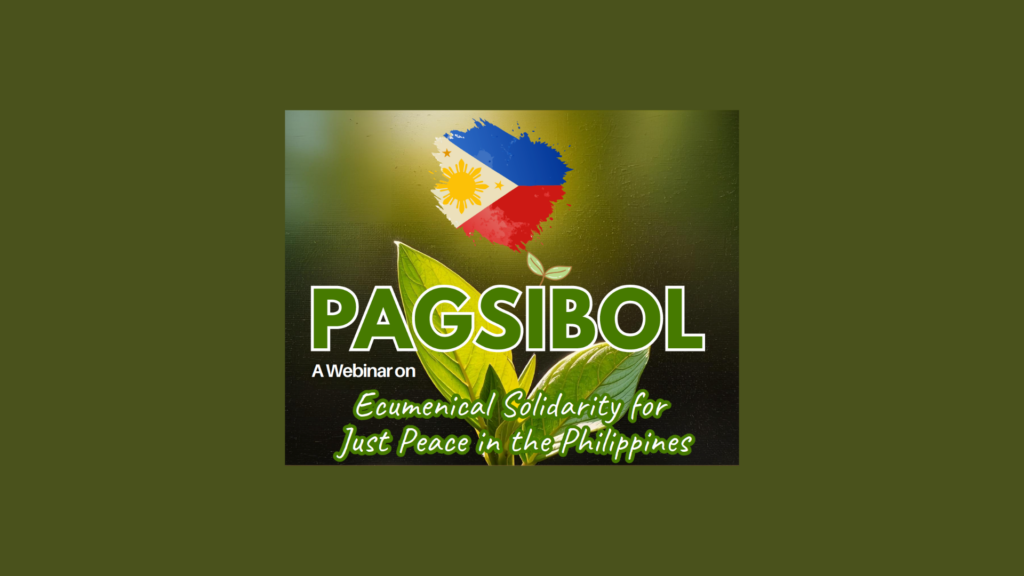Webinar – Pagsibol: Ecumenical Solidarity for Just Peace in the Philippines

The National Council of Churches in the Philippines (NCCP), Ecumenical Voice for Human Rights and Peace in the Philippines (EcuVoice), and the Working Group for the Global Ecumenical Forum for JustPeace in the Philippines (GEF-PH) would like to invite you to a webinar on ways forward after the Pagtatanim: Sowing Seeds of Faith Solidarity for the Filipino People’s Struggle for Peace, which was held on June 27-28, 2025, in Rome, Italy.
“Pagsibol: Ecumenical Solidarity for Just Peace in the Philippines”
September 30, 2025
22:00 (Manila) | 10:00 (New York) |15:00 (London)
Via Zoom
Registration link: Pagsibol 2025
After Pagtatanim (planting) is Pagsibol (growth)…
“They dress the wound of my people as though it were not serious. ‘Peace, peace,’ they say, when there is no peace.’” (Jeremiah 6:14)
Peace and human rights are indivisible. There can be no peace if the rights of the people are not respected and upheld. When human rights are denied and violated, there is UNPEACE. There is unpeace because there is injustice. Peace is not simply the cessation of armed conflict or the absence of war; unpeace is a complex phenomenon that encompasses the socio-economic, political, and cultural spheres of society.
While the armed conflict between the government and the Communist Party of the Philippines/New People’s Army/National Democratic Front of the Philippines (CPP/NPA/NDFP) is a major issue of unpeace in the country, the US’ Indo-Pacific Strategy, with its geopolitical objective to contain China in the Asia Pacific region, is heightening the situation of unpeace. The government of Pres. Ferdinand Marcos Jr. has allied himself with the United States. He has acquiesced to more presence of US troops and war materiel in the country, making it vulnerable to international conflict.
The various issues that the Filipino people face – denial of basic rights, violations of international humanitarian law, extreme vulnerability to climate change, and increasing foreign intervention –demand the accompaniment and solidarity of the international ecumenical community. Unpeace in the Philippines is rooted in historical injustices, including colonialism, racism, slavery, and genocide. It is a product of an unjust economic system defended and protected by political and military might.
Registration link: Pagsibol 2025

